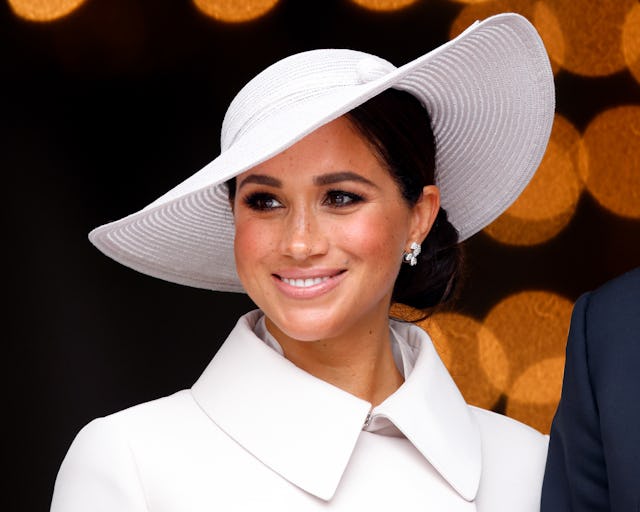Megan Markle Plans To Turn Her Anger About Roe V. Wade Into Action
“Nobody should be forced to make a decision they do not want to make, or is unsafe, or puts their own life in jeopardy.”

Like women across the country, Megan Markle, Duchess of Sussex and current resident of California, was devastated by the Supreme Court’s decision last week to overturn Roe v. Wade, which for almost 50 years had guaranteed the right to abortion.
“This is having a very real impact on women’s bodies and lives starting now,” Markle said in a joint interview with feminist activist Gloria Steinem for British Vogue. “Women are already sharing stories of how their physical safety is being put in danger.”
Enumerating the sorts of situations women are now facing, including having to travel to access care, turning to unregulated pharmacies for abortion pills, and waiting for doctors to deem a procedure medically necessary under restrictive laws, Markle concludes, “What does this tell women? It tells us that our physical safety doesn’t matter, and as a result that we don’t matter.”
But, rather than being frozen by despair, Markle is committed to using her outrage to fuel her activism. Pointing to the example of Steinem and her decades of work for women’s rights, Markle said, “she reminds me that when you have anger, you have to channel that energy into something that makes a difference. That’s what activism is. It’s about how we show up.”
Speaking of the high rates of maternal and infant mortality among Black populations, Markle said, “These issues are systemic, interconnected, and preventable. Women of Color and especially Black women are most impacted by these decisions because most of us don’t have the same access to healthcare, economic opportunity, mental health resources… the list goes on.”
Markle agrees with scholars and pundits who fear the damage of the ruling may be far-reaching.
“This is a blueprint for reversing rights. The ruling is a signal about the future of same-sex marriage, contraception access, and many fundamental rights to privacy. It feels like the tip of the iceberg and is part of why people feel so scared.”
As the mother of son Archie, 3, and daughter Lilibet, 1, Markle reflected on on her own experiences with pregnancy and miscarriage, and where the personal meets the political. “I think about how fortunate I felt to be able to have both of my children,” she said. “I know what it feels like to have a connection to what is growing inside of your body. What happens with our bodies is so deeply personal, which can also lead to silence and stigma.”
Markle explained her reasons for speaking publicly about her miscarriage in 2020, saying, “the more that we normalize conversation about the things that affect our lives and bodies, the more people are going to understand how necessary it is to have protections in place.”
“Nobody should be forced to make a decision they do not want to make, or is unsafe, or puts their own life in jeopardy,” Markle continued.
Listening to Steinem’s story about accessing an abortion when it was illegal, Markle noted to the interviewer, “It’s interesting that here you’re talking to two women: one who chose to give birth happily, and one who chose not to give birth happily. And we’re both prospering because we were able to make our own choices.”
While the Supreme Court decision is a devastating blow, coming so long after victories that Steinem and her contemporaries achieved in the ‘70s, it helps to hear that this generation of activists can count on voices like Markle’s to compel us to press forward in the face of such setbacks.